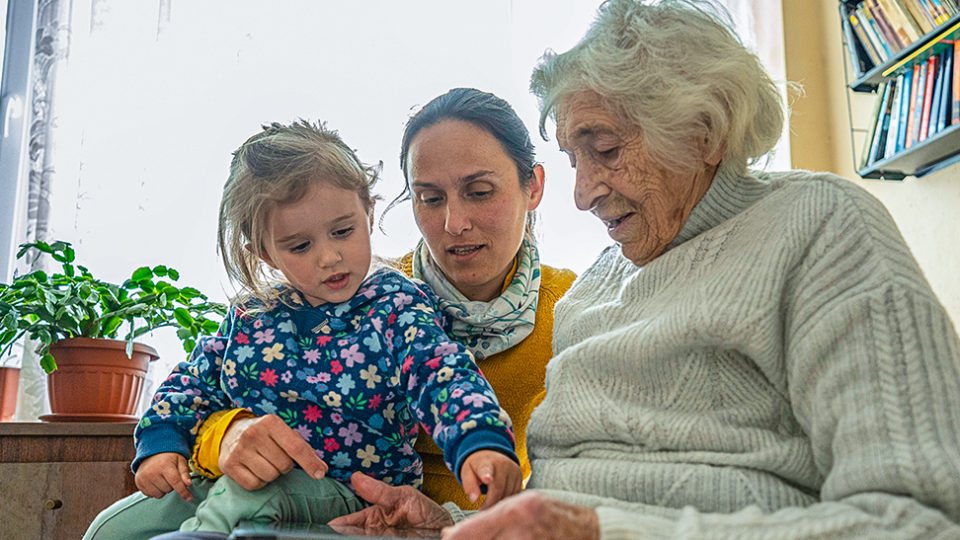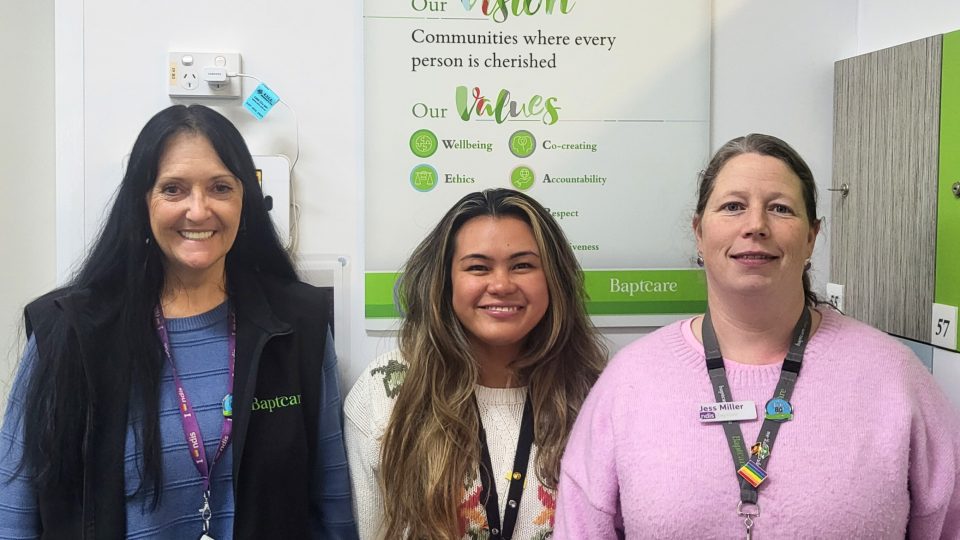How to have the difficult conversations with ageing parents about home care
- 12 Oct 2023

Key Points:
- It is important to have these conversations earlier rather than later so plans can be in place to ensure your loved one can remain supported at home
- There is between a six- and 18-month wait for home care services depending on when your parents have undergone an ACAS assessment
- The main benefit of receiving home care is to allow people to maintain their independence and to gain a better quality of life
- Having open conversations with your parents and really listening to their feelings on home care may make them more open to the idea
- Become familiar with the language used and how home care packages work
- Book an appointment with a primary care physician to conduct an assessment on your parents’ physical and mental wellbeing
When to discuss home care with elderly parents
You may have noticed that your ageing parents are getting more overwhelmed with everyday tasks in their home. Perhaps changing sheets on their bed or keeping up with gardening or grocery shopping has started to cause them stress?
It can be difficult to talk to our parents as they age about the need for them to get some extra help at home. However, it is important to have these conversations with your parents earlier rather than later so supports can be put in place to ensure that they can continue to live comfortably and independently at home.
Wait time for home care services
It is important to start the conversation about home care before your parent or loved one needs help at home. This forward planning is necessary because there can be between a six- and 18-month wait for home care services, depending on the date your parents have undergone an assessment from Aged Care Assessment Services (ACAS) and the priority your assessor gives to your parents’ application. Starting the conversation early will give you and your parents time to make plans and discuss care needs and options.
Does my parent need home care?
It can be difficult to know or predict when your parents are at a stage of needing home care, depending on factors such as their overall health, level of independence and ability to manage their daily activities. A resource that is helpful in beginning this process is by reaching out to My Aged Care to begin the assessment stage.
The positives of home care
Your parents may be hesitant to discuss home care so it’s important to highlight the benefits they will receive with extra home help. For example, let them know that the main benefit of receiving home care is to allow them to maintain their independence and to gain a better quality of life. You could focus on the positives of home care such as caregivers helping them with tasks around the house to make living at home easier, such as laundry, dishes, and cleaning. Another benefit is the companionship your parents will receive from their caregiver.
To learn more about the benefits of home care, refer to our website about how Baptcare offers you the highest quality Home Care Services, delivered by our caring, quality staff.
How to talk to your parents about home care
Your parents may be uncomfortable to discuss the introduction of home care into their lives. It can be challenging for a parent to feel like they have lost a sense of independence and they may even feel embarrassed about the idea of needing help with personal care. To make sure this conversation remains positive and productive, your loved one must feel that they are being listened to and understood. By having open conversations with your parents and really listening to their feelings on homecare, you may be able to identify the reasons why they may be hesitant with the idea of receiving help. You can then work together to come up with solutions that suit the needs of both you and your loved one.
Home care options
You can help make the home care discussions and process smooth for your parents by starting your own research early. There are many home care options and different providers available, but you’ll need to spend time sifting through the information. If possible, become familiar with the language used and how home care packages work before you start the conversation with your parents. You will then be able to explain calmly to your loved one how a home care package works, what types of care are available and the cost of the services.
It’s also a good idea to involve your parents in the research phase, asking them questions and working out their preferences along the way. This collaborative approach may help your parents to process and accept the introduction of home care into their lives.
Who can help me talk to my parents about home care?
In some cases, you may find it difficult to have the conversation about home care with your parents. Perhaps you’re not the best person to float the idea of home care, and this is okay. If so, think about who a better fit for your parents may be – someone within your family, a spouse, an aunt or even a friend.
Another option is to book in with your primary care physician to conduct an assessment. For some parents, advice coming from a trusted medical professional may mean they are more willing to accept home care.
Baptcare is here to assist you with finding reliable information, understanding your options, and applying for a Home Care Package. We understand that the process can be difficult and confusing, and we are dedicated to guiding and supporting you every step of the way.
Community news
-

The sandwich generation phenomenon unpacked
Welcome to the first of two blogs on the theme of the sandwich generation in Australia. In this one, we’ll cover the definition of the sandwich generation, the different types of caring that fall within it and some of the issues those in the sandwich generation face. The second blog will cover tips for dealing with life in the sandwich generation
- 02 Jul 2025
-

Wyndham Lodge Choir
Every Tuesday afternoon, residents gather in the sunny music room at Baptcare’s Wyndham Lodge Residential Aged Care community to sing together.
- 25 Jun 2025
-

The Green Team at Moonah Hub
The Sustainability Team, known as ‘The Green Team’, are based at Baptcare Moonah Hub in Hobart and are all about promoting environmentally friendly and sustainable practices in their office, the wider organisation and the local community. We asked Jess Miller, their enthusiastic and determined leader, all about the team and what they do. Read more below!
- 11 Jun 2025
